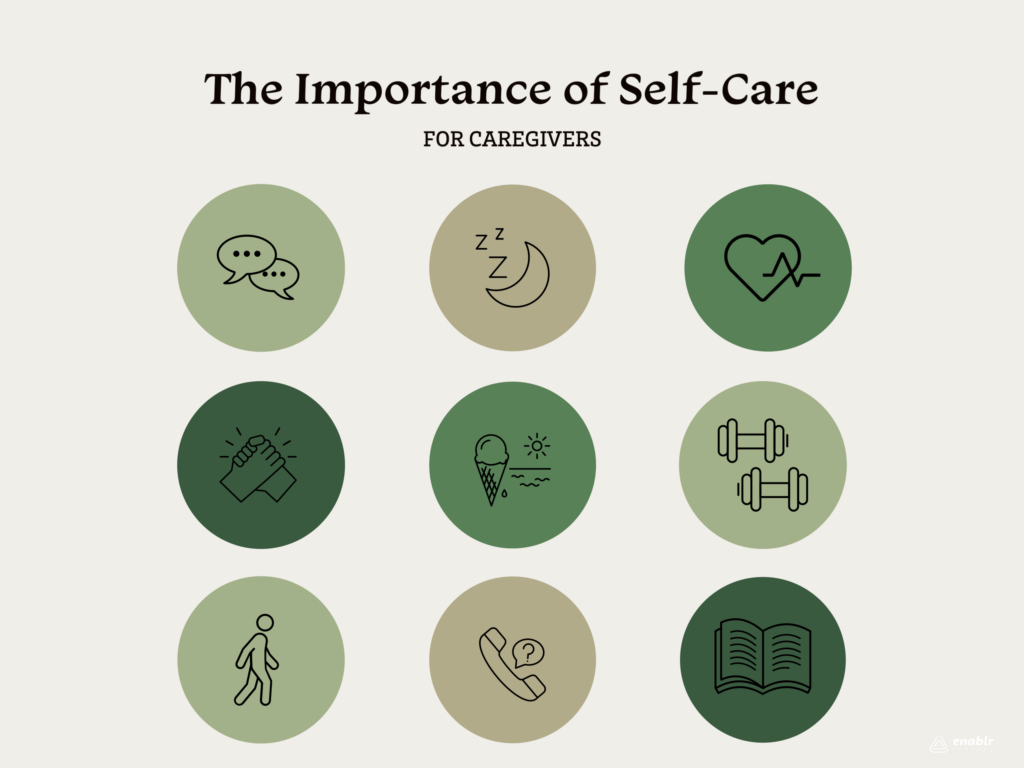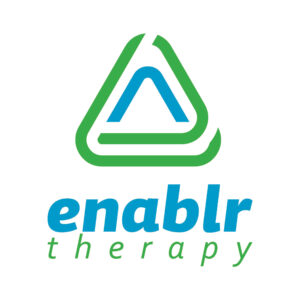“The simple act of caring is heroic.” – Edward Albert
Caregiving can be one of the hardest and most rewarding experiences in life. The act of walking alongside a loved one and providing support that they needed is a precious gift and is the backbone of our long term care system in the US. It is estimated that about 22% of adults have provided care or assistance to a friend or family member who had a health problem or disability in the last 30 days. However, this gift can be very costly for some caregivers, especially those that provide daily, extended support.
Data on Caregiving
Research has shown that caregivers are at risk for emotional, mental and physical health issues. Caregivers are twice as likely to experience depression than the general population. Over a third of caregivers report that they do not get sufficient sleep. Many also note that they have postponed addressing or neglected their own health needs.
Although it may seem counterintuitive, caregivers need to practice self-care and self-compassion, treating themselves with the same level of care and love as they do for those they are caring for.

“Self-care is never a selfish act – it is simply good stewardship of the only gift I have, the gift I was put on earth to offer others.”
– Parker Palmer
7 Tips for Caregivers
Enablr Therapy has seen the precious gift that caregiving provides to many of our clients. We have also seen the impact on some of our beloved caregivers. So, we have compiled some tips for some self-care and self-compassion. Caregivers, You Matter!
- Prioritize Your Health.
Often caregivers are so focused on giving care that they forget to even do the basics for themselves. Getting a full night’s sleep, eating regularly, and staying hydrated are everyday activities that can have a huge impact on health. In addition, scheduling regular check-ups and following up on any health concerns should be prioritized. If you are not well, your loved one will not be well cared for either.
Join a Caregiver Support Group.
Meeting and getting to know others who are walking the same path as you can provide invaluable support. Not only can they offer an empathetic listening ear that understands what you are experiencing but they also can provide some helpful tips and tricks that may make life a little easier. Most support groups are free and some organizations even offer online sessions for those that find it hard to get away from the house. To find a support group, consider contacting nonprofits that focus on specific medical conditions like the Alzheimer’s Association, American Cancer Society, or Autism Speaks. Or contact your local health and human services department to learn about local agencies and nonprofits that host support groups.
Stay Connected With Friends and Family.
Make an effort to connect with at least one other person besides the individual that you are caring for each day. Maintaining meaningful relationships has been shown to decrease stress, anxiety, depression, and lower other health risks.
Ask for Help.
Don’t be afraid to ask for help but be specific with what you need. For example, don’t just say that you need help with your house. Instead say something like, “It would be helpful to have someone mow my lawn this weekend or clean my bathrooms on Friday.” By being specific, friends and family know exactly what would be most helpful and are able to determine if they can provide the support without being concerned about unclear expectations.
For health crisis situations where more communication and coordination of care is needed, CaringBridge may be a helpful service. It allows families to set up an online personalized site where updates and requests like meals and help with other tasks can be shared with people that you invite to view the site. It makes it easier to communicate with a lot of people at once.
Treat Yourself.
Create some time where you can treat yourself to life-giving activities that can help to reduce your stress. It could be a walk in the park, a coffee or phone call with a dear friend, reading a chapter of a good book, playing fetch with a dog, or some other activity that you enjoy and recharges you. Life-giving activities don’t have to take a lot of time or cost a lot of money but it is important to feed your soul so you don’t burn out.
For longer term care, respite care services may be a good option that allow the caregiver to get away for a few hours to a few days. Hiring in-home care or asking family members to help on a regular schedule can give a much needed break.
Exercise.
There are many documented physical and mental health benefits to exercise. A 20 minute walk per day (or even 2-10 minute walks per day) can make a world of difference. In fact, if reasonable, take your loved one with you so that you both reap the benefits.
Get Professional Help.
If you are feeling depressed, anxious, and stressed, consider getting professional help from your physician and/or a counselor. Having medical treatment and mental health support can equip you so that you are better able to manage challenging situations and decision making.
Caregiving can be difficult and exhausting. But it can also be rewarding as you connect with your loved one in a very intimate way. Enablr Therapy salutes caregivers everywhere and the difference that they make!
Enablr Therapy provides speech, occupational, or physical therapy services to children and adults through convenient online services in many states across the country. If you feel that your family member may benefit from therapy to enhance their skills or want to explore modifications to support their performance and safety within their home, Enablr Therapy can help. Contact us to learn more.
References:
CDC (2019, August 7). Caregiving for Family and Friends- A Public Health Issue. Retrieved from https://www.cdc.gov/aging/caregiving/caregiver-brief.html#:~:text=22.2%25%20of%20caregivers%20aged%2065,compared%20to%2011.8%25%20of%20women.
Family Caregiver Alliance (2006). Caregiver Health. Retrieved from https://www.caregiver.org/resource/caregiver-health



